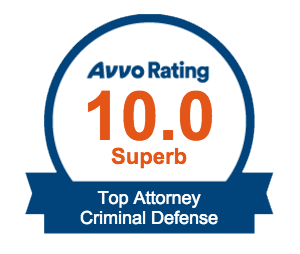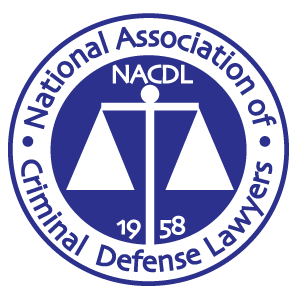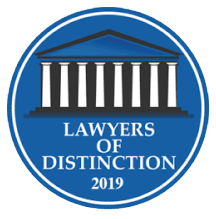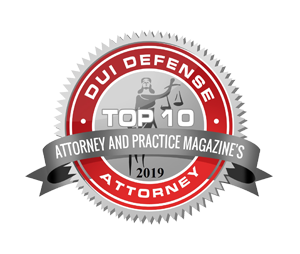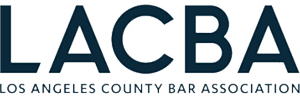If you have been arrested for a Fourth Offense DUI in Van Nuys, California, it goes without saying that you need an experienced attorney by your side. Not only are you likely to face the consequences such as huge fines, loss of driving privileges, and time in jail but also your freedom and rights are in jeopardy. The most effective way to protect yourself is hiring a skilled drunk driving attorney like The DUI Defense Attorney to stand by you throughout the process.
What to Expect After Being Charged with a Fourth Offense DUI
DUI offenses in California are priorable. That means each time you're found guilty of another drunk driving or Wet Reckless Offense, your consequences increase.
If you're arrested for driving while drunk and have three prior Driving Under the Influence convictions within the past ten years (look-back period), you are likely to be convicted of a California felony under California Vehicle Code Section 23152 VC. In this context, previous convictions include a combination of any of the following offenses:
- DUI (California Vehicle Code Section 23152(a) VC)
- Driving with too much blood alcohol concentration (Vehicle Code Section 23152(b) VC)
- DUI causing injury (Vehicle Code Section 23153 VC) which includes gross vehicular manslaughter and negligent under Penal Code Section 191.5 PC,
- Wet Reckless ( California Vehicle Code Section 23103.5 VC)
- Out-of-state convictions that if committed in the state of California can qualify to be one of the above offenses
- Expunged convictions of one of the offenses mentioned above
What Takes Place During a DUI Investigation?
The initial step in any DUI case is an investigation. The investigation can begin in either of the following ways:
- You were asked to stop for a traffic offense
- You were involved in an accident, and the police were called to the accident scene, or
- You were pulled over because of something related to your vehicle such as a burnt-out headlight
Notwithstanding how the investigation started, the police write it up in the same manner. They will report that after talking to you, they observed an odor of alcohol originating from your breath and that you exhibit physical objective signs and symptoms of intoxication.
Then the officer will conduct both Field Sobriety Tests and a Preliminary Alcohol Screening.
After you have been arrested for drunk driving, the police will take you either to a police station, jail, or hospital for a breath or blood test to determine your BAC levels. Breath test results are available immediately. Blood samples, on the other hand, are sent to a lab for analysis. Therefore, the results take a couple of days. If your breath test results reveal a BAC greater than 0.08%, you will be accused of violating Vehicle Code 23152(b) VC (driving with a blood alcohol concentration of 0.08 percent or more). Moreover, if the results are less than the arresting officer's expectations and they still believe that you were operating your car while drunk, they may require you to submit a urine or blood test.
If you refuse to submit to a blood, breath, or urine test, you'll still be arrested for driving while drunk. Also, you will have refusal allegations added to the DUI charges. Refusing to submit a chemical test is punishable by an additional two (2) days in jail.
What the Prosecution Should Prove To prove that you violated drunk driving laws, the prosecutor should present evidence of the following elements of the crime:
- You drove,
- While drunk or with a BAC of .08 percent or more, and
- You’ve three (3) prior convictions under the vehicle code sections mentioned above within the past 10 years.
To present evidence that you have previous drunk driving convictions, the prosecutor will use California court records, California DMV records, and certificates of completion from DUI school. California records are used to prove previous Driving Under the Influence and Wet Reckless convictions in California while out-of-state records present evidence for out-of-state crimes that are well-thought-out to be DUI convictions in the state of California.
Understanding Legal Terms
While these elements of the offense may seem self-explanatory, they require further explanation. To get a better understanding of these elements, below is an overview of legal terms:
- Under the Influence
Under California Vehicle Code 23152 (a), you're under the influence because of drinking alcohol. In a layman’s language, you're under the influence when your mental and physical capabilities are impaired/weakened to a degree/level you are not able to operate your vehicle cautiously like a sober person under the same circumstances.
How you operate a car isn’t conclusive of whether operated your vehicle while drunk. Instead, it’s among the factors put into account when considering everything.
How the Prosecution Team Presents Evidence that You were Under the Influence
DUI is subjective. That means the prosecutor will prove that you violated DUI law based on the observations made by the arresting officer. The case against a defendant starts when the officer bears witness about things that they didn’t do right. Normally the testimony will comprise observation of physical appearance, driving pattern, and performance on Field Sobriety Tests.
When it comes to proving a bad driving pattern, the arresting officer will testify that you drove erratically, swerved, and weaved hence unable to drive the same way as a sober person. Additionally, the arresting officer will bear witness that you showed objective signs of intoxication include slurred speech, wobbliness on feet, watery eyes, and an alcohol odor coming from the breath.
- Driving
If the police see you operating your car then the ‘'you drove'' element of the crime is satisfied.
Nevertheless, this isn't always the case. For instance, what happens if the defendant was asleep in their vehicle? There are different types of drunk driving cases that occur daily in DUI cases. Consequently, it isn't sufficient for the entire prosecution team to bear witness that the defendant was drunk. Instead, they should present proof that you drove the vehicle while intoxicated.
To establish driving the court holds that your car's movement is required. The court goes further to hold that the movement should be proven using circumstantial evidence.
What Penalties Does 4th DUI Offense in California Carry?
Fourth-time DUI in California is an automatic felony. When a felony DUI originates from multiple previous Driving Under the Influence convictions, the consequences vary with each case depending on the circumstances surrounding the case and if there were aggravating factors present during the arrest. Below is a basic penalties guideline:
- A sixteen (16) months or 2 or 4 year sentence,
- Fines and penalty assessments that range between $390 and $1,000,
- Revocation of driver's license for 4 years, and
- Designation of a Habitual Traffic Offender Status for 3 years by DMV.
However, with Senate Bill 1046, it is possible for you to continue enjoying driving privileges as long as you keep an ignition interlock device installed for 3 years.
How to Beat a Felony DUI Charge
Fourth-time DUI offense in California is harshly prosecuted and requires a very aggressive defense. Therefore, if you've been accused of a felony DUI offense, you need an experienced attorney who will be able to use either of the following legal defenses:
Bad Driving Doesn't Automatically Mean Drunk Driving
As noted earlier, one of the things arresting police officer will testify against you is the driving pattern. More often than not, the bad pattern will include allegations that you were over-speeding or swerving within the lane.
Any experienced attorney will ask the arresting police to highlight ways that you operated your vehicle safely and with caution. The attorney will then use the officer's testimony to argue that sober drivers commit most traffic offenses, and driving pattern isn't a reliable predictor of drunk driving.
Objective Physical Signs and Symptoms of Intoxication Do not Mean You Drove while Drunk
A competent DUI defense lawyer will challenge the prosecutor's use of symptoms of drunkenness to determine that you were intoxicated. The attorney may defend you by arguing that allergies, fatigue, eye irritation, or cold could have caused those signs.
Additionally, your attorney should also be in a position to bring forth a testimony that alcohol has no odor. What is perceived as alcohol emitting from breath could be the smell of ingredients found in non-alcoholic and alcoholic drinks.
Blood Test Errors
Another effective drunk driving legal defense is the possibility of blood test errors. This could be a result of improper storage of blood samples, blood contamination, and blood fermentation.
To understand how both the chemical test was done and samples stored, your lawyer can request a blood split motion. Subject to the blood test storage and collection, the lawyer could be in a position to have your blood alcohol concentration results removed from evidence. This could lead to DUI charges dismissal.
Lack of Probable Cause for a Drunk Driving Stop
Before a police officer can arrest a defendant for drunk driving, detain the defendant so that they can conduct an investigation or stop a vehicle, the police should have a rational belief that the defendant committed an offense.
If the arresting officer does not have probable cause before conducting any of the above investigation stages, then any proof acquired from that stage will be suppressed. Once the court suppresses evidence, the prosecutor can't use it against a defendant.
The incorrectness of Field Sobriety Tests
Even the best FSTs are not correct indicators of alcohol or drug impairment. The tests that have real data to support their trustworthiness are about 65% accurate at noticing impairment, and that is if they were administered and recorded precisely.
The innocent reasons that would count for physical symptoms of impairment can be used to give details about poor performance on field sobriety tests. Other factors include:
- Intimidation by the police officer,
- Bad weather,
- Rough surface conditions, and
- Footwear.
Any reliable attorney will ensure that the prosecutor isn't in a position to present your FSTs performance as proof against you.
Police Misconduct
If your lawyer can prove police misconduct, then your drunk driving charges could be dismissed even if you are guilty. This is because proper police procedures should be followed. They include:
- Drunk driving police reports should be accurate,
- Testimonies in the courtroom should be truthful, and
- Title 17 procedures should be adhered to.
If one of these conditions are manipulated, all evidence fabricated or unlawfully obtained will be suppressed. Depending on how serious this affects the case, the prosecutor could choose to dismiss or reduce the charges against you.
The Arresting Officer Didn't Conduct a Fifteen-minute Observation Period
California's Title 17 of the Code of regulation gives guidelines on how chemical samples should be collected, administered, analyzed, and stored. If the arresting officer fails to abide by the regulations, then the DUI arrest is called to question.
One of the regulations is that the police should observe you for more than fifteen minutes before conducting a chemical test. This is to ensure that the defendant doesn't eat, drink, vomit, regurgitate, smoke, or do something that can compromise the test's results. Failure to conduct this observation period puts your results at risk and could mean that your blood alcohol concentration was not 0.08 percent or greater during the arrest (something that could lead to dismissal of your case).
The Breath Test Device wasn't Calibrated or Functioning Properly
Moreover, Title 17 of the Code of regulation controls the operation and maintenance of breath testing Devices. According to the law, these instruments should go through an accuracy check after every 150 blows or ten days. If you submit samples on devices that do not meet the standards, the blood alcohol concentration could be wrong, and the judge could suppress the case against you.
Additionally, if the Device was out of order, that could also give false results.
How to Prevent Driver's License Revocation: DMV Hearing
If you're arrested for drunk driving in California, you will face 2 different legal proceedings: a court charge and a Department of Motor Vehicles hearing. Although a California DMV hearing focuses on withdrawing your driving privileges, the two proceedings are related. Testimony acquired during the DMV hearing may convince the prosecution team to reduce your charges after plea bargaining or even dismiss the charges. Also, if you receive a not guilty judgment during a jury trial, that verdict could force the California DMV to restore your driving privileges.
Since these proceedings are conducted differently, it is vital to have a lawyer who understands both of them.
Immediately after a defendant is arrested for DUI, the officer will take away their driver's license before issuing them with a Notice of Suspension. This notice functions as their driver's license (temporary) for 30 days. It also informs the accused that they are entitled to a Department of Motor Vehicles hearing to stop revocation of their driver's license. However, the defendant needs to request a hearing within 10 days after their arrest. Failure to request a hearing within the 10-day window forfeits the entitlement to do so.
To schedule the hearing, you should contact the DMV driver safety branch office near you (where the hearing will be held). It is worth noting that this office is not where you registered your car or obtained the license.
If you hire a lawyer to represent you in the court proceeding, they will most likely request and also schedule the DMV hearing for you as long as you retain their services within the ten-day timeframe. They could also appear on the hearing on your behalf if you're not going to testify. In most cases, the hearing is conducted over the phone instead of in-person.
What Takes Place if you Win a California DMV Hearing?
If you win the California Department of Motor Vehicles hearing and the hearing official overrules the action, you will regain your driving privileges. It also means you can get a better deal during plea bargaining. Moreover, if the hearing reveals gaps in the case, it could even persuade the court to dismiss the case.
Nonetheless, since the court and DMV hearing proceedings are different, winning a DMV hearing doesn't automatically carry over to the jury trial. For some reason, the prosecution team could still feel that it has strong evidence against you.
If you're finally convicted of DUI, the court can revoke your license. That is why it's important to hire a lawyer who is familiar with both systems.
What Transpires if You Lose Your California DMV Hearing?
As far as your driving privileges are concerned, your driver's license will be revoked if you lose the DMV hearing. Even though you lose the hearing, your attorney could have collected information/evidence during the DMV hearing that can encourage the prosecution team to give you a reduced plea. Moreover, a reduced plea can cause the California DMV hearing officer to cancel your driver's revocation even if it had become effective.
So how can you restore your driving privileges? Having your license revoked for four years does not mean the end of the road for you. You can qualify for license restriction after a year if you:
- Attend a drug/alcohol education program,
- Submit an SR-22 form, and
- Pay reinstatement fee ($125).
Find A DUI Defense Lawyer Near Me
A fourth drunk driving offense in Van Nuys carries severe penalties that can affect your social life, family, finances, and career. It is, therefore, important to work with an attorney who will assist you achieve the best possible results. For legal representation, contact our Los Angeles DUI lawyer at 818-253-1913.

